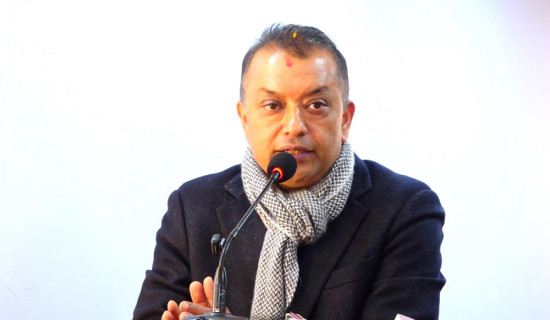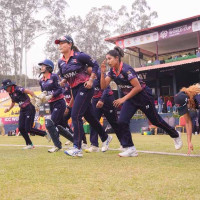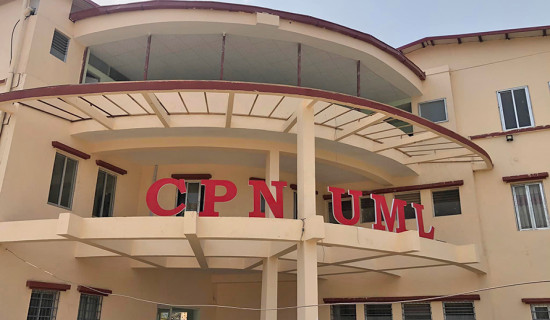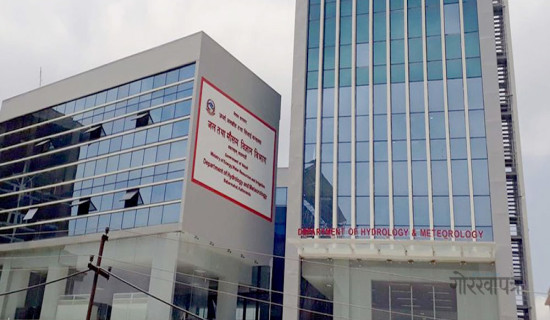- Sunday, 25 January 2026
Caution In Amendment
It is an obvious fact that the present coalition government was formed with the political as well as constitutional agenda of constitution amendment. The Constitution of Nepal, which was drafted and promulgated by the sovereign and elected Constituent Assembly in 2015, carries several progressive values and provisions of a democratic national charter. One of the most important provision is that it has institutionalised the federal democratic republican polity with meaningful inclusion of socially and economically marginalised and excluded people. These are basic fundamental parts of the new constitution, which are highly acclaimed by the people at home all over the world. Thus, the new constitution had garnered overwhelming majority while passing it from the Constituent Assembly (CA).
Against these backdrop, the two major parties of the ruling coalition- - the Nepali Congress and the CPN-UML - are ready to forward the agenda of constitution amendment as they had pledged this during formation of this coalition by forming a taskforce which is seconded by some legal experts. They also decided to form other related panels to expedite the parliamentary affairs and to assess the service delivery of the government. These taskforces will be helpful for the effective implementation of the government's policies and objectives.
The political parties and the government should consider many issues while taking steps for revisiting the constitution. First, they should not forget the spirit of the various people’s movements, particularly the movement of 2006 which was a milestone to introduce federal democratic republic in Nepal. The spirit of the movement should be kept alive while making changes in the provisions of the supreme legal charter of the nation.
Second, the efforts of the statute amendment should be directed towards strengthening inclusive character of the constitution and the laws governed under the spirit of its principal directives. Reports are that the ruling parties are going to review the reservation allocated to the marginaliesd communities. The taskforce should conduct a study on whether the reservations are really reached out to the targeted communities or not. This agenda should be addressed first and foremost before proceeding ahead towards the amendment.
The third agenda is that the government should think of incorporating all political forces which are active and have major stakes in the national politics. Garnering a consensus from them will provide broader legitimacy to and ownership of statute amendment. The fourth agenda is that the political parties should develop a mechanism to muster consent from the people at large. The statute shall be more functional when the people feel their ownership towards the amendment process and the final content.
The fifth and vital agenda is that the political parties should be cautious about the potential risks, undesired repercussions and unwanted reactions from forces hell-bent on aborting progressive achievements of the people. The amendment must work towards smooth functioning of the democratic system that delivers justice and prosperity to the people in general. The process should not be haphazard, hasty and short-sighted as the national charter is the key to setting the nation's political course and shaping its destiny.







-square-thumb.jpg)






-original-thumb.jpg)


